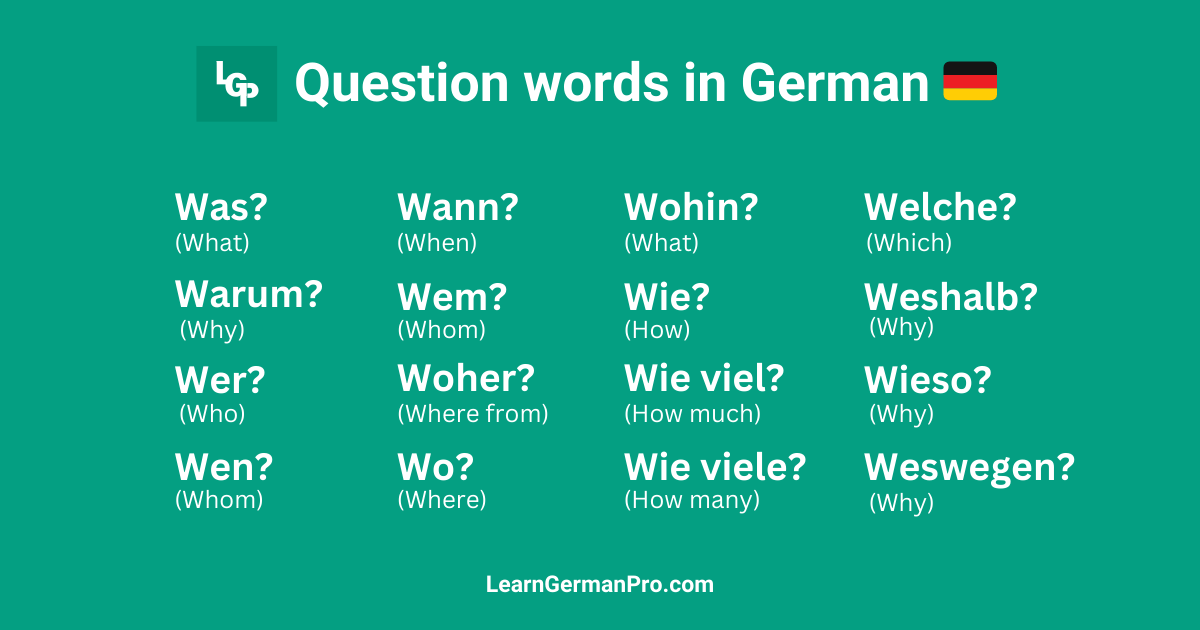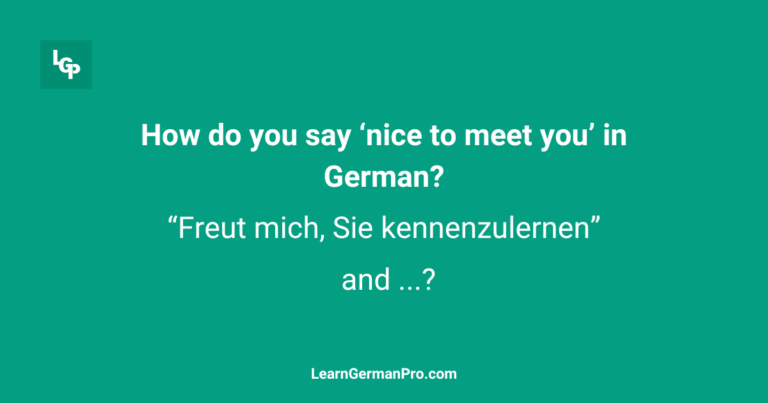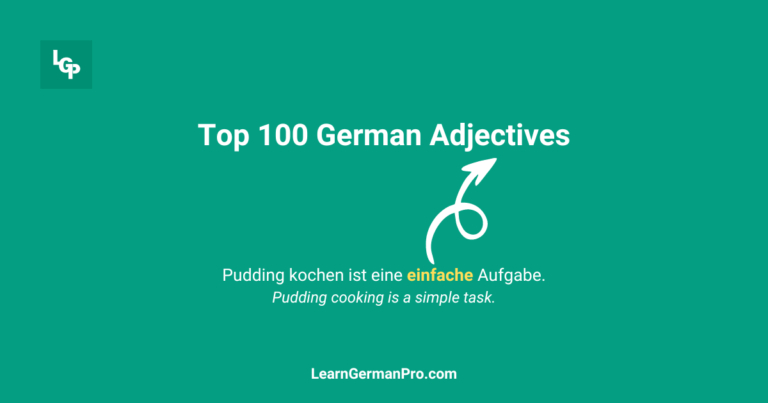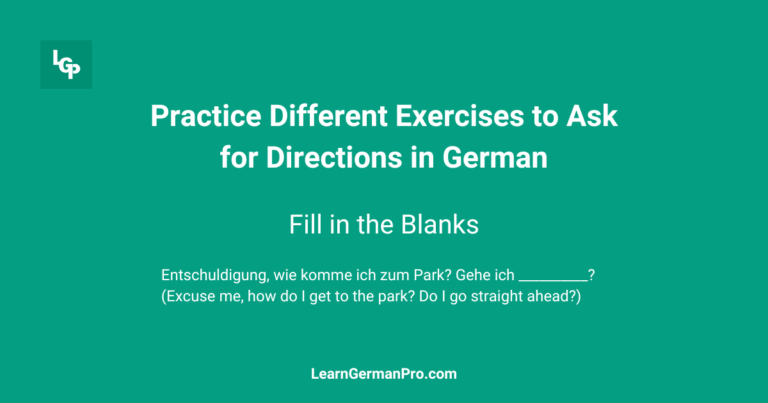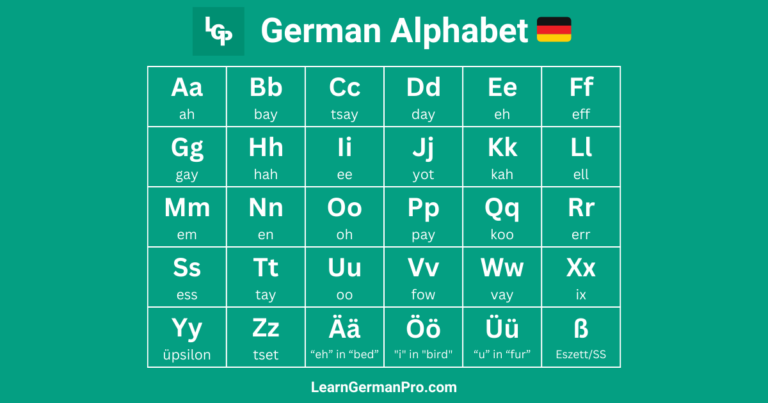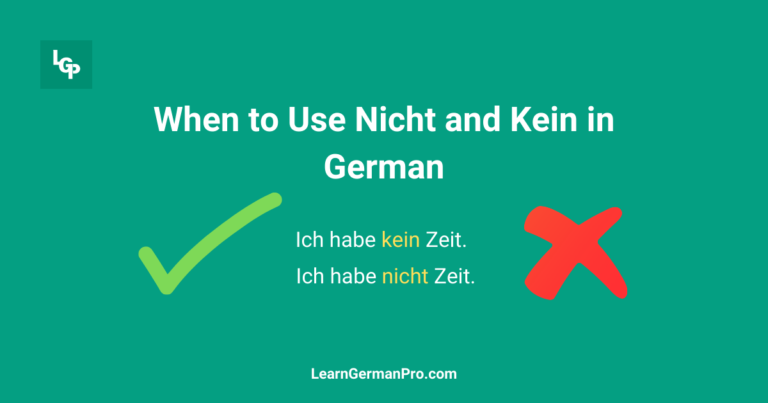Different Question Words in German and How to Use Them
Asking question is the first step towards change. When you are learning any new language you should also know how to ask question. In this article, we will see different question words in German that will be really helpful to you to start a quick conversation in German. Whether you want to know more about a person or ask for directions, questions are your friend.
We generally use question words like how, what, where, when, which, who, why etc. in our day to day life conversation. Asking questions in German is as simple as asking it in any other language. It will be overwhelming in the beginning but I am sure you’ll get a hold of it gradually, so let’s get started with out basic German question words.
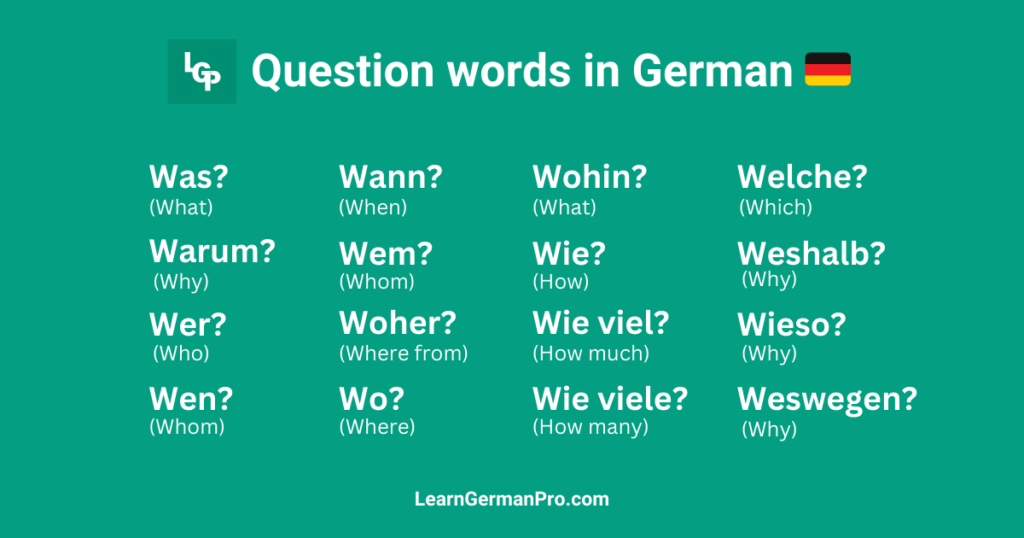
Fun Fact: All German question words start with “W”. That’s why they’re called “W-Fragen” (W-questions). W fragen questions in German are super easy to learn.
What are the Different Question Words in German?
The following German question words will help you master your questioning skills in German faster.
- Was (What)
- Wer(Who)
- Wen (Whom – Accusative case)
- Wem (Whom – Dative case)
- Welcher / Welche / Welches (Which – changes based on gender and case)
- Wo (Where)
- Wohin (Where to)
- Woher (Where from)
- Wann (When)
- Wie (How)
- Warum (Why)
- Wieso (Why – synonym of “warum”)
- Weshalb (Why – synonym of “warum” and “wieso”)
- Weswegen (Why – slightly more formal)
- Wie viel (How much)
- Wie viele (How many)
Let’s look at them one by one in more detail. We have rearranged them for you to learn and master them faster from the conversational point of view.
Wie (How)
If you are new in Germany and quickly want to ask something or befriend someone then you can start the conversation by asking them “How are you?”, its an easy icebreaker. “Wie” is used to ask about the manner or condition of something, and it can also be used for asking comparisons.
Let’s explore it with few examples.
| Wie geht es dir? | How are you? |
| Wie heißt du? | what is your name? (How are you called?) |
| Wie spät ist es? | What time is it? (this could be confusing) |
| Wie findest du das? | How do you find that? |
| Wie war dein Tag? | How was your day? |
| Wie lange dauert der Film? | How long is the movie? |
| Wie alt bist du? | How old are you? |
| Wie kommst du zur Arbeit? | How do you get to work? |
Fun Fact: “Wie” means more than just “how”. While wie is often used to ask “how,” it’s also used in other contexts like introductions, Wie heißt du? What is your name? and comparisons Wie groß bist du? – How tall are you?
There are few variants of the word “wie” available, so let’s take a look at them.
Wie viel (How much)
This is similar to the previous question word “wie” but with an extra added word “viel”. “Wie viel” is used for uncountable nouns. You will use this word often when are out for shopping (but not limited to it).
Here is the example:
| Wie viel kostet das? | How much does that cost? |
| Wie viel Zucker brauchst du? | How much sugar do you need? |
| Wie viel Arbeit hast du heute? | How much work do you have today |
| Wie viel Zeit haben wir noch? | How much time do we have left? |
Lets look at another variant of “wie”.
Wie viele (How many)
Just an added ‘e’ huh! Well this extra ‘e’ changes the meaning from much to many. “Wie viele” is used for countable nouns. Lets see the following examples.
| Wie viele Leute kommen? | How many people are coming? |
| Wie viele Bücher liest du pro Jahr? | How many books do you read per year? |
| Wie viele Stunden arbeitest du täglich? | How many hours do you work daily? |
| Wie viele Tassen Kaffee trinkst du am Tag? | How many cups of coffee do you drink per day? |
The more you practice these words the more it will become easier for you to use in daily communication.
Was (What)
One of the widely used question word in German is “Was”. It is used to ask for objects, actions, or explanations in German. It often inquires about “what” someone is doing, asking for, or talking about. You will hear a lot and its very easy to grasp.
Let’s look at some examples.
| Was machst du? | What are you doing? |
| Was isst du? | What are you eating? |
| Was ist das? | What is that? |
| Was hast du gesagt? | What did you say? |
| Was liest du? | What are you reading? |
| Was brauchst du? | What do you need? |
| Was kostet das? | What does that cost? |
| Was lernst du? | What are you studying? |
| Was bedeutet dieses Wort? | What does this word mean? |
| Was hörst du? | What are you listening to? |
Fun Fact: Was is used in some idiomatic phrases. It appears in some funny idiomatic expressions. For example, Was ist los? means “What’s going on?”, a common way to ask what’s up or what’s happening.
Wo (Where)
“Wo” means where, it is used to ask about the current location or position of something or someone. It has few variants that we will explore in moments.
| Wo wohnst du? | Where do you live? |
| Wo ist der Bahnhof? | Where is the train station? |
| Wo hast du das Buch gelassen? | Where did you leave the book? |
| Wo arbeitest du? | Where do you work? |
| Wo bist du? | Where are you? |
| Wo findet das Treffen statt? | Where is the meeting taking place? |
| Wo ist mein Handy? | Where is my phone? |
| Wo warst du gestern? | Where were you yesterday? |
| Wo kaufst du ein? | Where do you shop? |
| Wo ist der nächste Supermarkt? | Where is the nearest supermarket? |
Fun Fact: “Wo” can be combined with prepositions like from and to, like woher (from where) and wohin (to where). This helps make questions definite about directions or origins.
Woher (Where from)
Want to ask someone where are they coming from? Then this word will definitely help you. “Woher” means “where from” and it is used to ask about the origin or starting point of something or someone.
Quick examples given below.
| Woher kommst du? [Woher kommen Sie?] | Where are you from? (informal) Where do you come from? (formal) |
| Woher hast du das? | Where did you get that from? |
| Woher weißt du das? | How do you know that? |
| Woher kommt dieser Wein? | Where is this wine from? |
| Woher hast du diese Information? | Where did you get this information? |
| Woher kommt das Geld? | Where is the money from? |
| Woher kommt dieser Lärm? | Where is this noise coming from? |
| Woher kennst du ihn? | Where do you know him from? |
| Woher stammt das? | Where does that originate from? |
| Woher hast du den Ring? | Where did you get the ring from? |
Wohin (Where to)
If we want to ask where someone is going or something going to then we use “Wohin”, it is used to ask about the destination or direction of movement.
Let’s see some examples.
| Wohin gehst du? | Where are you going? |
| Wohin fährt dieser Zug? | Where is this train going? |
| Wohin fliegst du im Urlaub? | Where are you flying on vacation? |
| Wohin willst du heute Abend? | Where do you want to go tonight? |
| Wohin bringst du den Koffer? | Where are you taking the suitcase? |
| Wohin soll ich den Stuhl stellen? | Where should I put the chair? |
| Wohin schickst du das Paket? | Where are you sending the package? |
| Wohin sollen wir gehen? | Where should we go? |
| Wohin läuft der Hund? | Where is the dog running to? |
| Wohin führt dieser Weg? | Where does this path lead to? |
Wann (When)
If you want to ask for the time, date, or point in time of an event or action then you have to use “Wann”. It is quite straight forward and similar to the question word when in English.
Let’s explore some examples.
| Wann beginnt der Film? | When does the movie start? |
| Wann gehst du zur Arbeit? | When do you go to work? |
| Wann hast du Geburtstag? | When is your birthday? |
| Wann hast du Zeit? | When do you have time? |
| Wann fährt der Zug ab? | When does the train depart? |
| Wann endet die Schule? | When does school end? |
| Wann treffen wir uns? | When do we meet? |
| Wann hast du das gemacht? | When did you do that? |
| Wann beginnt das Konzert? | When does the concert start? |
| Wann kommst du nach Hause? | When are you coming home? |
Fun Fact: “Wann” for time and “Wie lange” for duration. Although both deal with time, wann asks “when” (specific time or date), while wie lange asks about the length of time or duration (how long).
Warum (Why)
The most commonly used question word to ask “why” is “Warum” and it is suitable for almost every context. You will encounter this word in the beginning of you German language learning journey.
| Warum bist du spät? | Why are you late? |
| Warum machst du das? | Why are you doing that? |
| Warum hast du nicht angerufen? | Why didn’t you call? |
| Warum gehst du nicht ins Kino? | Why don’t you go to the cinema? |
| Warum lernst du Deutsch? | Why are you learning German? |
| Warum weinst du? | Why are you crying? |
| Warum warst du so wütend? | Why were you so angry? |
| Warum ist der Laden geschlossen? | Why is the store closed? |
| Warum hast du das Buch gekauft? | Why did you buy the book? |
| Warum magst du keinen Kaffee? | Why don’t you like coffee? |
If you are just getting started with learning the German language then you should definitely checkout this amazing article – how do you say nice to meet you in German.
Different Forms of Why in German
Wieso (Why – synonym of “warum”)
“Wieso” is similar to Warum but it is often used when seeking a bit more clarification or need more information in detail, similar to “how come?” or “how so?” in English.
Let’s quickly see some examples.
| Wieso bist du müde? | Why are you tired? |
| Wieso hast du das gemacht? | Why did you do that? |
| Wieso hast du nicht Bescheid gesagt? | Why didn’t you inform me? |
| Wieso bist du zu Hause geblieben? | Why did you stay home? |
| Wieso hast du gelacht? | Why did you laugh? |
| Wieso funktioniert es nicht? | Why is it not working? |
| Wieso hast du nichts gegessen? | Why didn’t you eat anything? |
| Wieso hast du das Konzert verpasst? | Why did you miss the concert? |
| Wieso hast du den Schlüssel verloren? | Why did you lose the key? |
| Wieso lernst du so fleißig? | Why are you studying so hard? |
Weshalb (Why – synonym of “warum” and “wieso”)
Another word similar to Warum and Wieso is Weshalb, which also means why but it is slightly more formal and might sound a bit literary. It is still interchangeable with warum and wieso.
| Weshalb kommst du so früh? | Why are you coming so early? |
| Weshalb warst du gestern nicht da? | Why weren’t you there yesterday? |
| Weshalb reist du nach Berlin? | Why are you traveling to Berlin? |
| Weshalb hast du die Prüfung nicht bestanden? | Why did you not pass the exam? |
| Weshalb arbeitest du hier? | Why are you working here? |
| Weshalb hast du das Auto gekauft? | Why did you buy the car? |
| Weshalb magst du den Film nicht? | Why don’t you like the movie? |
| Weshalb bist du so gestresst? | Why are you so stressed? |
| Weshalb gehst du nicht mit uns? | Why aren’t you coming with us? |
| Weshalb hast du nichts gesagt? | Why didn’t you say anything? |
Weswegen (Why – slightly more formal)
“Weswegen” also means why and it is often used in more formal situations and can have a similar feel to “for what reason” in English.
| Weswegen bist du traurig? | Why are you sad? |
| Weswegen hast du ihn angerufen? | Why did you call him? |
| Weswegen kommst du heute nicht? | Why aren’t you coming today? |
| Weswegen bist du so nervös? | Why are you so nervous? |
| Weswegen hast du das gesagt? | Why did you say that? |
| Weswegen hast du so lange gewartet? | Why did you wait so long? |
| Weswegen bist du hier? | Why are you here? |
| Weswegen hast du das Treffen verpasst? | Why did you miss the meeting? |
| Weswegen bist du so früh gegangen? | Why did you leave so early? |
| Weswegen hast du deine Meinung geändert? | Why did you change your mind? |
Wer (Who)
If you want to ask about a person then you should use “Wer”. “Wer” means “who” and is used to inquire about the subject of a sentence.
Let’s see some examples.
| Wer ist das? | Who is that? |
| Wer kommt heute? | Who is coming today? |
| Wer hat das gesagt? | Who said that? |
| Wer arbeitet hier? | Who works here? |
| Wer spielt Fußball? | Who is playing soccer? |
| Wer singt dieses Lied? | Who is singing this song? |
| Wer kennt die Antwort? | Who knows the answer? |
| Wer ist der Lehrer? | Who is the teacher? |
| Wer hat den Kuchen gebacken? | Who baked the cake? |
| Wer hat das Buch geschrieben? | Who wrote the book? |
Fun Fact: Wer changes based on grammatical case. In the nominative case, it’s wer (who), but in the accusative case, it becomes wen (whom), and in the dative case, it’s wem (to whom).
Wen (Whom – Accusative case)
“Wen” means whom, but hey don’t confuse it with Wann. If you want to ask about the object of a sentence, that is, the person receiving an action. It’s the accusative case of “wer.”
| Wen rufst du an? | Whom are you calling? |
| Wen siehst du? | Whom do you see? |
| Wen magst du? | Whom do you like? |
| Wen hast du getroffen? | Whom did you meet? |
| Wen fragst du? | Whom are you asking? |
| Wen hast du eingeladen? | Whom did you invite? |
| Wen kennst du hier? | Whom do you know here? |
| Wen besuchst du morgen? | Whom are you visiting tomorrow? |
| Wen hast du gesehen? | Whom did you see? |
| Wen bringst du zur Party mit? | Whom are you bringing to the party? |
Wem (Whom – Dative)
“Wem” means whom and is used when asking about the indirect object, that is, the person to whom something is given or done. It’s the dative case of “wer.”
| Wem gibst du das Buch? | Whom are you giving the book to? |
| Wem gehört dieses Auto? | Whom does this car belong to? |
| Wem schreibst du einen Brief? | Whom are you writing a letter to? |
| Wem hast du geholfen? | Whom did you help? |
| Wem erzählst du die Geschichte? | Whom are you telling the story to? |
| Wem hast du das Geld gegeben? | Whom did you give the money to? |
| Wem sagst du die Wahrheit? | Whom are you telling the truth to? |
| Wem hast du das Geschenk gekauft? | Whom did you buy the gift for? |
| Wem vertraust du? | Whom do you trust? |
| Wem gehört das Haus? | Whom does the house belong to? |
Welcher / Welche / Welches (Which – changes based on gender and case)
“Welcher,” “Welche,” and “Welches” are used to ask which depending on the gender of the noun in the question masculine, feminine, neuter.
| Welcher Tag ist heute? | Which day is today? |
| Welche Farbe magst du? | Which color do you like? |
| Welches Buch liest du? | Which book are you reading? |
| Welcher Film ist besser? | Which movie is better? |
| Welche Stadt gefällt dir? | Which city do you like? |
| Welches Auto möchtest du kaufen? | Which car do you want to buy? |
| Welcher Stift ist deiner? | Which pen is yours? |
| Welche Schule besuchst du? | Which school do you attend? |
| Welches Tier ist dein Liebling? | Which animal is your favorite? |
| Welcher Bus fährt zum Bahnhof? | Which bus goes to the train station? |
How do you form questions in German?
Well, it is similar to forming questions in English and pretty much straightforward if you are just beginning to learn how to form questions in German.
Following are few structure that you can refer to form question in German.
1. Yes/No Questions (Ja/Nein Fragen)
These are the simplest types of questions, where the answer is either “yes” or “no.” In this case, you invert the subject and verb, meaning the verb comes first in the sentence.
Structure:
Verb + Subject + (Object/Other Elements)?
Examples:
- Hast du Hunger? (Are you hungry?)
- Geht er ins Kino? (Is he going to the cinema?)
2. W-Questions (W-Fragen)
These are questions that start with a question word like “who,” “what,” “when,” etc. In this structure, the question word comes first, followed by the verb, and then the subject.
Structure:
Question Word + Verb + Subject + (Object/Other Elements)?
Examples:
- Was machst du? (What are you doing?)
- Wann gehst du zur Arbeit? (When do you go to work?)
- Wo wohnt er? (Where does he live?)
Common W-Questions in German:
| German | English |
|---|---|
| Wer | Who |
| Was | What |
| Wann | When |
| Wo | Where |
| Wie | How |
| Warum | Why |
| Wohin | Where to |
| Woher | Where from |
| Welche | Which |
3. Questions with Modal Verbs
When using modal verbs (such as können, müssen, wollen), the structure follows the same pattern as in yes/no or W-questions, but the modal verb comes first, and the main verb goes to the end.
Structure for Yes/No Questions:
Modal Verb + Subject + Other Elements + Main Verb?
Examples:
- Kannst du mir helfen? (Can you help me?)
- Müssen wir heute arbeiten? (Do we have to work today?)
Structure for W-Questions:
Question Word + Modal Verb + Subject + Other Elements + Main Verb?
Examples:
- Wann kannst du kommen? (When can you come?)
- Warum musst du gehen? (Why do you have to go?)
4. Questions with Separable Verbs
With separable verbs, the prefix is moved to the end of the sentence. The structure remains the same, but you need to remember that the prefix will be split from the verb and placed at the end.
Structure for Yes/No Questions:
Verb (without prefix) + Subject + Object/Other Elements + Prefix?
Example:
- Stehst du früh auf? (Do you get up early?)
Structure for W-Questions:
Question Word + Verb (without prefix) + Subject + Object/Other Elements + Prefix?
Example:
- Wann stehst du auf? (When do you get up?)
5. Questions with “Es gibt” (There is/There are)
When asking about the existence of something, you can use the phrase es gibt.
Structure:
Question Word + gibt es + Object/Other Elements?
Examples:
- Gibt es einen Supermarkt in der Nähe? (Is there a supermarket nearby?)
For W-questions:
- Wo gibt es einen Supermarkt? (Where is there a supermarket?)
And there you have all of it – all the question words in German language. They are too many words to learn but you can do it with lots and lots of practice. Even if you forget something while asking questions then you can quickly refer to this post.
If you really liked this post then please share it with your friends and family are on the path of learning Deutsch.
Until next time
Ciao, Ciao!!

